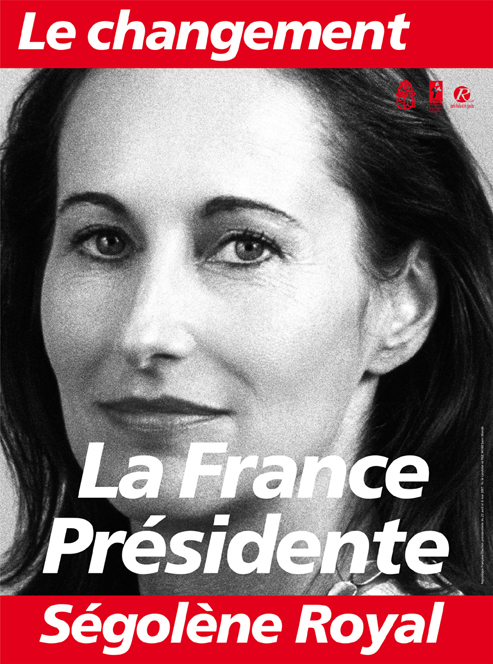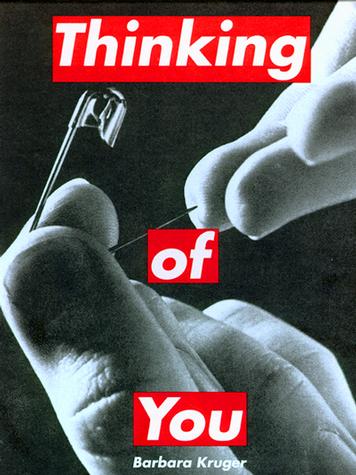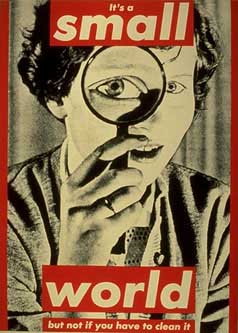30 November 2009
SPONT'EX, part 1
So by an open invitation of Madjid, I should tell you about Spont'Ex.
Where do I start? Probably with the 16th of January 1994.
It wasn't the day we started Spont'Ex. But it was the day we first demonstrated as a group - if I recall well. The right-wing Balladur government (with Bayrou as the ministre of Education) had passed a law that, in short, offered better conditions for private, often catholic, schooling thus threatening the foundation of the public and secular ( laïc ) schooling of the French republic. The law was subsequently emptied of its core by the Conseil constitutionnel but 1 million people decided nonetheless to remind the governement of its attachment to the public school by demonstrating in the streets. That was probably the biggest demonstration I ever attended.
It was thrilling to be there, exciting and powerful. We were all caught in the hope of a yes future. We were carrying fake pink flowers and giving people appointment for May (rendez-vous en Mai) in stickers. We were hoping for a political change (that happened 3 years later with Jospin) that would knocked down the same ambient tight-ass conservatism that suffocates us nowadays since 2002. It just gets me crazy how we've been stuck in a political limbo for 7 very long years, first with Chirac and now with Sarkozy and that we can't seem to put an end to it. What's worse is that when I'm looking at the current left-wing opponents, none of them inspire me a sense of happiness, modernity and intellectual brightness that I'm striving for : a sense of Spont'Exitude.
Well, I still have at least that fake pink flower, ever since then, by my bed.
Where do I start? Probably with the 16th of January 1994.
It wasn't the day we started Spont'Ex. But it was the day we first demonstrated as a group - if I recall well. The right-wing Balladur government (with Bayrou as the ministre of Education) had passed a law that, in short, offered better conditions for private, often catholic, schooling thus threatening the foundation of the public and secular ( laïc ) schooling of the French republic. The law was subsequently emptied of its core by the Conseil constitutionnel but 1 million people decided nonetheless to remind the governement of its attachment to the public school by demonstrating in the streets. That was probably the biggest demonstration I ever attended.
It was thrilling to be there, exciting and powerful. We were all caught in the hope of a yes future. We were carrying fake pink flowers and giving people appointment for May (rendez-vous en Mai) in stickers. We were hoping for a political change (that happened 3 years later with Jospin) that would knocked down the same ambient tight-ass conservatism that suffocates us nowadays since 2002. It just gets me crazy how we've been stuck in a political limbo for 7 very long years, first with Chirac and now with Sarkozy and that we can't seem to put an end to it. What's worse is that when I'm looking at the current left-wing opponents, none of them inspire me a sense of happiness, modernity and intellectual brightness that I'm striving for : a sense of Spont'Exitude.
Well, I still have at least that fake pink flower, ever since then, by my bed.
23 November 2007
Striking!
Today marked the end of the strike, the subway runs pretty much as usual, nobody is complaining anymore. It's as if nothing happened. During the last 10 days, the TV news kept on showing us how unhappy people were that they couldn't go to work and how angry they were that a minority would go on strike to keep their privileges, namely an early retirement.
Contrary to common beliefs, a long strike like this one is pretty unusual in France. The last one of a similar importance was in december 1995, 12 years ago. It lasted 3 weeks and ended just in time for the Christmas shopping. Because if there's something that French people love to do more than to go to work is to go shopping. I was last Saturday at the Galeries Lafayette gourmet, full as ever, at the heart of strike period and somewhat people managed to come all the way down there, with all the nearby subway and train lines down, and there were no TV cameras to show that the strike was after all not so constraining for the French economy.
I can understand the arguments of the train workers, they're right - why would they want to keep doing after 50 such a tedious job? And also, I can understand that in the configuration of our economy maintaining early retirements is not really possible anymore. So why not using this opportunity to question the relationship to work itself? With the current president "work more to earn more" Sarkozy, the notion of work as the ultimate modern value is statufied. But the real revolution is to be able to choose a job that makes you happy or at least that you wouldn't want to leave "early" in your career or that maybe is not getting you at the end of the day to burn your life with alcohol, and anti-depressants and cocaine. The leaders of the economy are exploiting the need for people to get a job that will at least sustain basic expenses - all they care for is to make sure they are profitable, and that in a nice convenient loop, they can spend the small money they earn in a desperate gesture cynically called "pouvoir d'achat" (consuming power) which is the only power they will ever feel in their life: because when you've been spending your day feeling "you're nothing" at work, all you can do is buy and buy more at your turn to feel "you're something".
This actually puts the act of consumption at the heart of the next revolution, between ecological, political and economical awareness: what you buy, how you buy it, where you buy it, why, etc... More and more, I'm interested in alternative theories like "décroissance" or "degrowth". It's fascinating because it puts the problem upside down and for that only, I like it.
And finally, as it was the case in 1995, this strike was very valuable if only for one thing: rediscovering the relationship to the city, to the ways you move in it, to the ways you get from one point to another, and to time (for instance, instead of making sure I want the shortest time spent between the place where I am and where I should be, I have to think of what I'm going to do in the time that I wait - mainly walk - and through what part of the cities).
Contrary to common beliefs, a long strike like this one is pretty unusual in France. The last one of a similar importance was in december 1995, 12 years ago. It lasted 3 weeks and ended just in time for the Christmas shopping. Because if there's something that French people love to do more than to go to work is to go shopping. I was last Saturday at the Galeries Lafayette gourmet, full as ever, at the heart of strike period and somewhat people managed to come all the way down there, with all the nearby subway and train lines down, and there were no TV cameras to show that the strike was after all not so constraining for the French economy.
I can understand the arguments of the train workers, they're right - why would they want to keep doing after 50 such a tedious job? And also, I can understand that in the configuration of our economy maintaining early retirements is not really possible anymore. So why not using this opportunity to question the relationship to work itself? With the current president "work more to earn more" Sarkozy, the notion of work as the ultimate modern value is statufied. But the real revolution is to be able to choose a job that makes you happy or at least that you wouldn't want to leave "early" in your career or that maybe is not getting you at the end of the day to burn your life with alcohol, and anti-depressants and cocaine. The leaders of the economy are exploiting the need for people to get a job that will at least sustain basic expenses - all they care for is to make sure they are profitable, and that in a nice convenient loop, they can spend the small money they earn in a desperate gesture cynically called "pouvoir d'achat" (consuming power) which is the only power they will ever feel in their life: because when you've been spending your day feeling "you're nothing" at work, all you can do is buy and buy more at your turn to feel "you're something".
This actually puts the act of consumption at the heart of the next revolution, between ecological, political and economical awareness: what you buy, how you buy it, where you buy it, why, etc... More and more, I'm interested in alternative theories like "décroissance" or "degrowth". It's fascinating because it puts the problem upside down and for that only, I like it.
And finally, as it was the case in 1995, this strike was very valuable if only for one thing: rediscovering the relationship to the city, to the ways you move in it, to the ways you get from one point to another, and to time (for instance, instead of making sure I want the shortest time spent between the place where I am and where I should be, I have to think of what I'm going to do in the time that I wait - mainly walk - and through what part of the cities).
Labels: City, Economy, Politics, Shopping, Work
30 May 2007
My true nature
When I was a kid, like many other kids of my generation, I watched Japanese anime on TV. Names like Candy, Goldorak and Albator are common references in France. And one of the reasons is that many of those anime were co-produced between France and Japan. We were not really the Sesame Street culture.
There was one particular anime that stood out among dozens of them. I was 8 or 9 and hooked to the end (actually I never got to watch the very last episode). It bore the most exciting title: "Les Mystérieuses Cités d'Or" (The Mysterious Cities of Gold) and with a mix of history, poetry and science-fiction, it tells the most exciting story - In 1532, Esteban, an orphan believed to have the power to call the Sun (he would be the "son of the sun"), leaves Spain at 12 to follow an intriguing sailor and adventurer, Mendoza, to the New World to look for his father. On the road, he befriends two kids his age: first, Zia, an Inca and then Tao, the last descendant of the Mu empire. In Peru, they travel on the path of the cities of gold while trying to escape the pursuit of the Conquistadors who believe they are the keys to immense treasures.
I'm pretty much convinced that this anime triggered most of my life callings: traveling, history and politics.
Maybe I'm being simplistic but I can't remember before that time this intense need I had pretty early to expand my horizons widely, and this awareness of the links, bridges and breaks between civilizations and of the wastes and damages a conquering people could provoke upon a defeated one.
Admire the construction of the opening credits, a sort of Powers-of-Ten that builds up the excitation to a dramatic resolution carried by the song.
The first seconds and the narrator's voice still have quite the same commanding effects on me.
--Joëlle
There was one particular anime that stood out among dozens of them. I was 8 or 9 and hooked to the end (actually I never got to watch the very last episode). It bore the most exciting title: "Les Mystérieuses Cités d'Or" (The Mysterious Cities of Gold) and with a mix of history, poetry and science-fiction, it tells the most exciting story - In 1532, Esteban, an orphan believed to have the power to call the Sun (he would be the "son of the sun"), leaves Spain at 12 to follow an intriguing sailor and adventurer, Mendoza, to the New World to look for his father. On the road, he befriends two kids his age: first, Zia, an Inca and then Tao, the last descendant of the Mu empire. In Peru, they travel on the path of the cities of gold while trying to escape the pursuit of the Conquistadors who believe they are the keys to immense treasures.
I'm pretty much convinced that this anime triggered most of my life callings: traveling, history and politics.
Maybe I'm being simplistic but I can't remember before that time this intense need I had pretty early to expand my horizons widely, and this awareness of the links, bridges and breaks between civilizations and of the wastes and damages a conquering people could provoke upon a defeated one.
Admire the construction of the opening credits, a sort of Powers-of-Ten that builds up the excitation to a dramatic resolution carried by the song.
The first seconds and the narrator's voice still have quite the same commanding effects on me.
--Joëlle
Labels: Anime, History, Politics, Traveling
20 April 2007
It's Now or Never
Since about 2 weeks, French people were able to see official campaign posters next to schools, our voting places for one day (this Sunday).
The only poster among the 12 out there that really stands out is Ségolène Royal's. It has a very simple, yet effective design: her picture is in white and black, and her slogan "Le changement: Ségolène Royal" is written in white on a red background.
The 1st time I saw it, one name popped into my mind: Barbara Kruger.
The aesthical similarity is almost too strong not to be done in purpose. And honestly, that only gives more points to my favorite candidate. This poster is clearly a statement, refering directly to a feminist and strongly political-minded artist and opting for radical design in general is quite a bold and modern move.
We'll know the results of the 1st round on Sunday. Hoping for the best...




--Joëlle
The only poster among the 12 out there that really stands out is Ségolène Royal's. It has a very simple, yet effective design: her picture is in white and black, and her slogan "Le changement: Ségolène Royal" is written in white on a red background.
The 1st time I saw it, one name popped into my mind: Barbara Kruger.
The aesthical similarity is almost too strong not to be done in purpose. And honestly, that only gives more points to my favorite candidate. This poster is clearly a statement, refering directly to a feminist and strongly political-minded artist and opting for radical design in general is quite a bold and modern move.
We'll know the results of the 1st round on Sunday. Hoping for the best...




--Joëlle
Labels: Barbara Kruger, Elections, Politics, Ségolène Royal
